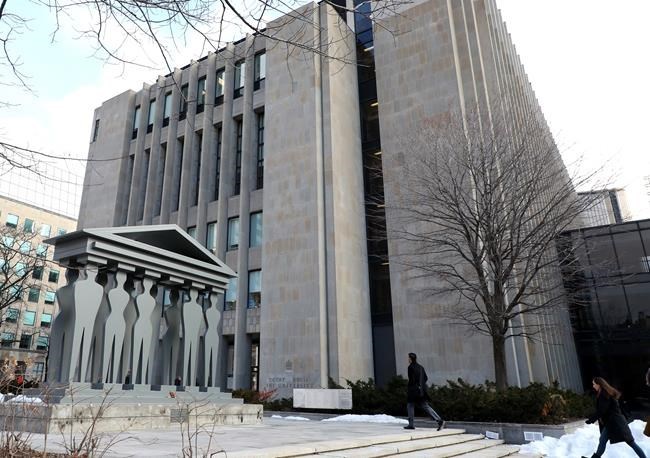A recent Ontario court ruling signals people using dangerous anti-LGBTQ slurs can’t hide behind certain free speech protections to shield themselves from legal accountability, a lawyer for a drag performer said.
The Ontario Superior Court ruling out of Thunder Bay clears the way for lawyer Douglas Judson's client to advance a defamation suit against a man who allegedly used a slur on his self-identified "media/news" Facebook page to accuse drag performers of predatory behaviour.
“A significant achievement in this litigation is that we now have a decision that says that these harmful tropes that we’re seeing a lot of, particularly online, particularly from the far-right and from American-based social media narratives, is not a matter of public interest,” Judson said in an interview.
The plaintiffs in the defamation case are a person who performs as a drag king and the LGBTQ not-for-profit in Dryden, Ont., where they serve as board chair. They allege the man's Facebook post called the drag performer a "groomer" and implied the organization is holding events for sexual predators.
In dismissing the anti-SLAPP motion, Justice Tracey Nieckarz's decision recognized "groomer" as a slur perpetuating hurtful myths and stereotypes about LGBTQ people.
The man brought a pretrial motion asking the judge to dismiss the lawsuit, claiming it was intended to stifle his comments on a matter of public interest. According to the decision, he argued his post, which included a CBC article with an image of the drag performer, was about the broadcaster's alleged promotion of the performance at a Dryden library.
At the time of the post, the page had 4,400 likes and 6,500 followers and was publicly viewable to Facebook users, the decision said.
Anti-SLAPP laws are intended to give defendants protection from frivolous lawsuits designed to silence criticism on matters of public interest rather than vindicate a legitimate claim. Common examples of Strategic Lawsuits Against Public Participation (SLAPP) include corporations filing multi-million-dollar claims against critics in a bid to intimidate them into staying quiet.
"This action does not have the hallmarks of a 'gag' proceeding, but rather a legitimate defence of reputation against serious allegations," Nieckarz wrote in her decision.
Nieckarz rebuked the defendant's public interest argument and wrote that a plain reading of his comments indicate they are about the motivations of the drag performance's organizers and participants.
"I agree with the Plaintiffs that perpetuating such stereotypes and myths about members of the 2SLGBTQI community is not public interest speech," she wrote in the decision, dated Dec. 14.
The decision clears the way for the defamation claim to go ahead. The merits of the case have not been argued at trial.
Judson says he would ask the court to hear this case together with another client's defamation claim against the same man, which relates to similar alleged statements about drag performances.
The defendant, who was self-represented in court, did not immediately respond to a request for comment sent by email.
LGBTQ groups have repeatedly highlighted the ways critics of drag performances intended for younger audiences often treat gender diversity as inherently dangerous to children. Those critics, groups say, have increasingly used homophobic language to equate the performances to child luring.
The plaintiffs brought expert evidence to demonstrate the history of drag and its connections to the LGBTQ community, Judson said. They also brought evidence linking the history of the "groomer" rhetoric and its traction as a slur to real incidents of anti-LGBTQ violence.
"As political leaders on the right have become more comfortable engaging in this dog whistle rhetoric about LGBT people, it is giving licence for citizens to do that. And some of that expression is turning into actual incidents of hate and violence," said Judson.
"And that's something that we hope that litigation like this can send a strong message about."
This decision, he said, sends a "very positive signal" to LGBTQ people that "there are legal tools in place that can provide some measure of support and accountability when these things happen."
This report by The Canadian Press was first published Dec. 31, 2023.
Jordan Omstead, The Canadian Press
